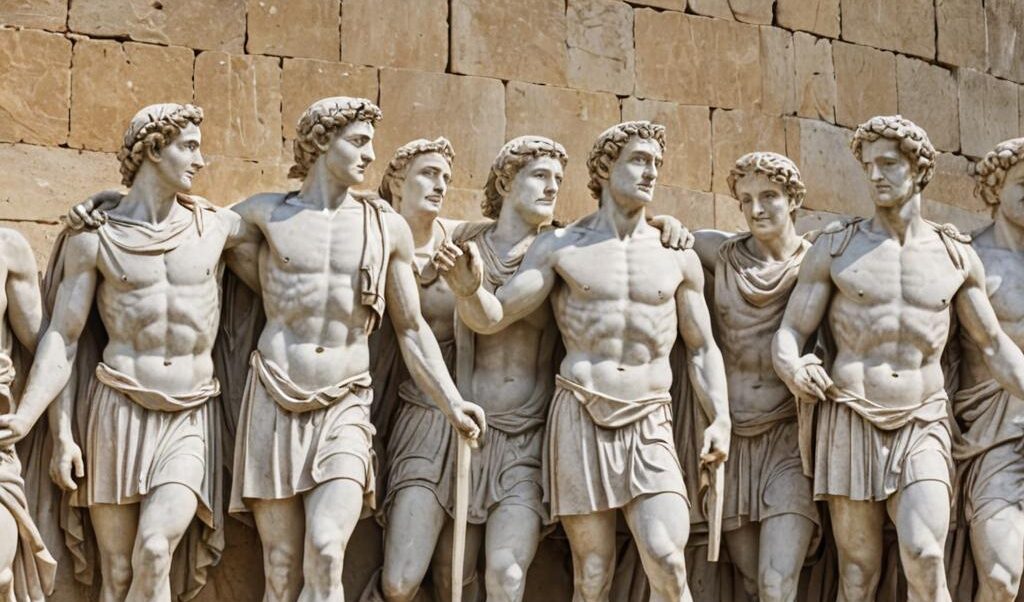Friedrich Nietzsche, not only for his philosophical ideas but also for his life, has left a profound impact as one of the most significant figures in modern thought. His philosophy challenges traditional societal values, advocates for individual freedom, and calls for a courageous journey to unlock the full potential of humanity. With striking expressions like “God is dead,” Nietzsche has provoked deep reflection in others, and through his concept of the “Übermensch,” he has left an important legacy on individual freedom and development.
However, Nietzsche’s life reflects not only his intellectual but also his personal struggles with a pessimistic and questioning approach. He lived much of his life in isolation, battling health issues and mental collapse, yet always striving to find his own path. Nietzsche’s profound and meaningful expressions, such as “The world is a hell for sensitive hearts,” reveal his exploration of inner conflicts and his questioning of society’s relationship with the individual.
In this article, we will closely examine Nietzsche’s life, philosophy, the ideas that inspired him, and the tragic events in his final years. Get ready to explore Nietzsche’s thoughts, the turning points in his life, and the lessons he offered humanity!
Who is Nietzsche?
Friedrich Nietzsche (1844–1900) was a German philosopher, writer, and cultural critic who made significant contributions to Western philosophy, particularly in areas such as individual freedom, the questioning of moral values, and the realization of human potential. Nietzsche critiqued traditional religious, moral, and social structures, offering deep reflections on the concept of the “Übermensch” and the “will to power.” His philosophy formed the foundation for many modern movements, including existentialism.
Nietzsche’s Life
Friedrich Nietzsche was born on October 15, 1844, in the small town of Röcken, Germany. His father, a Protestant pastor, passed away when Nietzsche was young, which had a profound impact on him. After his father’s death, Nietzsche continued to live with his family in a small town. Nietzsche was highly successful in his education, and during his time at Bonn University in 1864, the foundations of his future career as a philosopher were being laid.
However, Nietzsche’s health was quite fragile. During his university years, he began experiencing neurological issues. In 1869, he became a professor of philosophy at Basel University, but due to his health problems, he was forced to leave his academic post soon after.
Throughout his life, Nietzsche lived a lonely and isolated existence. Unlike many great philosophers and artists, Nietzsche struggled with financial difficulties, health problems, and inner conflicts. In 1889, an event in the city of Turin marked a turning point in his life. Nietzsche witnessed a coachman mercilessly whipping his horse, which was so exhausted it could not react. Nietzsche, deeply moved, ran to the horse, embraced it, and collapsed. After this event, his mental state rapidly deteriorated, and he spent many years in a psychiatric hospital.
Nietzsche passed away on August 25, 1900.

Nietzsche’s Philosophy
Nietzsche’s philosophy can be summarized around themes such as individual freedom, the questioning of moral values, the death of God, and the realization of human potential. Nietzsche critiqued the foundations of Western morality, especially Christianity, and traditional moral systems. At the heart of his thinking is the idea that the individual must overcome themselves and carve their own path.
The Übermensch (Overman)
One of Nietzsche’s most famous concepts, the “Übermensch” (Overman), represents the idea of human beings surpassing existing values and societal norms to reach a higher ideal of humanity. Nietzsche saw this ideal not just as physical but also as a mental and spiritual evolution. The Übermensch is an individual who can create their own meaning, define their own values, and adopt a lifestyle beyond traditional society.
God’s Death and Nihilism
The phrase “God is dead” holds a central place in Nietzsche’s philosophy and reflects the collapse of religious belief in the modern world. Nietzsche observes that Western societies, due to industrialization, scientific progress, and rational thinking, have lost their faith in God and religious values. This collapse leaves individuals and societies without old moral and metaphysical foundations.
At this point, Nietzsche introduces nihilism, the idea that life loses its meaning, values, and purpose. After the death of God, people are left without religious and moral norms, making it difficult for them to find meaning in life. Nietzsche’s expression “God is dead, we have killed him!” highlights this situation and the necessity for people to create new values.
Nihilism is seen as a threat in Nietzsche’s philosophy, but it is also viewed as a way to transcend it. Nietzsche argues that individuals who fall into this “meaninglessness” must take on the responsibility of creating new values and meaning. This idea leads to his concept of the Übermensch and the desire to live life more powerfully.
Will to Power
Nietzsche’s concept of the “will to power” emphasizes that the most important source of strength in a person’s life is their will. He associates the ability to create and develop one’s life with the “will to power.” This represents an inner strength necessary for overcoming obstacles and realizing one’s potential.

Nietzsche’s Final Years and the Event in Turin
Nietzsche’s last years were marked by mental collapse and deep loneliness. In 1889, he witnessed an event in Turin where a coachman mercilessly whipped his horse, which was too tired to respond. Nietzsche, moved by empathy, ran to the horse and embraced it. He is said to have cried, saying “Mother, I’m sorry” or “Mother, I’m a fool.” After this, Nietzsche collapsed and lost consciousness. This event marked the beginning of his mental breakdown.
After this incident, Nietzsche did not speak to anyone for ten years, living in complete isolation. His erratic behavior increased, and he was admitted to a mental hospital, spending his last years there. His mental and physical health issues forced him to lead an extremely isolated life, effectively distancing himself from humanity.
The World is a Hell for Sensitive Hearts
This event and Nietzsche’s later years left deep marks on his philosophy. He viewed the world as “a hell for sensitive hearts.” He recognized how sensitive and empathetic individuals were often ignored or suffered under the harsh societal norms and pressures imposed by others.
Nietzsche’s empathy for suffering souls is part of his philosophical reflections. As he confronted the cruelty of the world, he distanced himself from humanity and lived the rest of his life in inner solitude. His expression “The world is a hell for sensitive hearts” reflects this darker, deeper side of his philosophy.
Nietzsche’s and Dostoevsky’s similar ways of confronting the harsh world and the hopelessness of life influenced their philosophies significantly. Nietzsche’s life and thoughts have become a key reference for those trying to understand humanity’s search for meaning and the contradictions faced in societal structures.
React with emojis!












